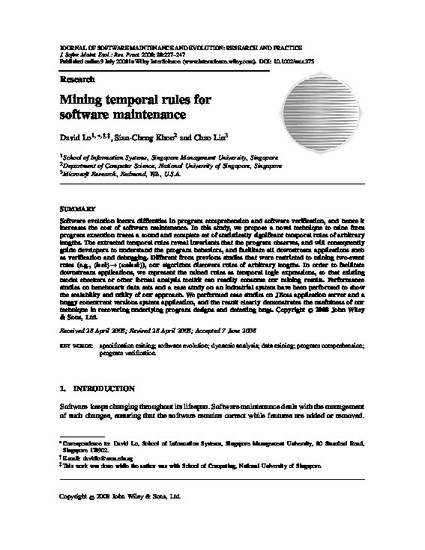
Software evolution incurs difficulties in program comprehension and software verification, and hence it increases the cost of software maintenance. In this study, we propose a novel technique to mine from program execution traces a sound and complete set of statistically significant temporal rules of arbitrary lengths. The extracted temporal rules reveal invariants that the program observes, and will consequently guide developers to understand the program behaviors, and facilitate all downstream applications such as verification and debugging. Different from previous studies that were restricted to mining two-event rules (e.g., (lock) →(unlock)), our algorithm discovers rules of arbitrary lengths. In order to facilitate downstream applications, we represent the mined rules as temporal logic expressions, so that existing model checkers or other formal analysis toolkit can readily consume our mining results. Performance studies on benchmark data sets and a case study on an industrial system have been performed to show the scalability and utility of our approach. We performed case studies on JBoss application server and a buggy concurrent versions system application, and the result clearly demonstrates the usefulness of our technique in recovering underlying program designs and detecting bugs. Copyright © 2008 John Wiley & Sons, Ltd.
Available at: http://works.bepress.com/david_lo/21/
